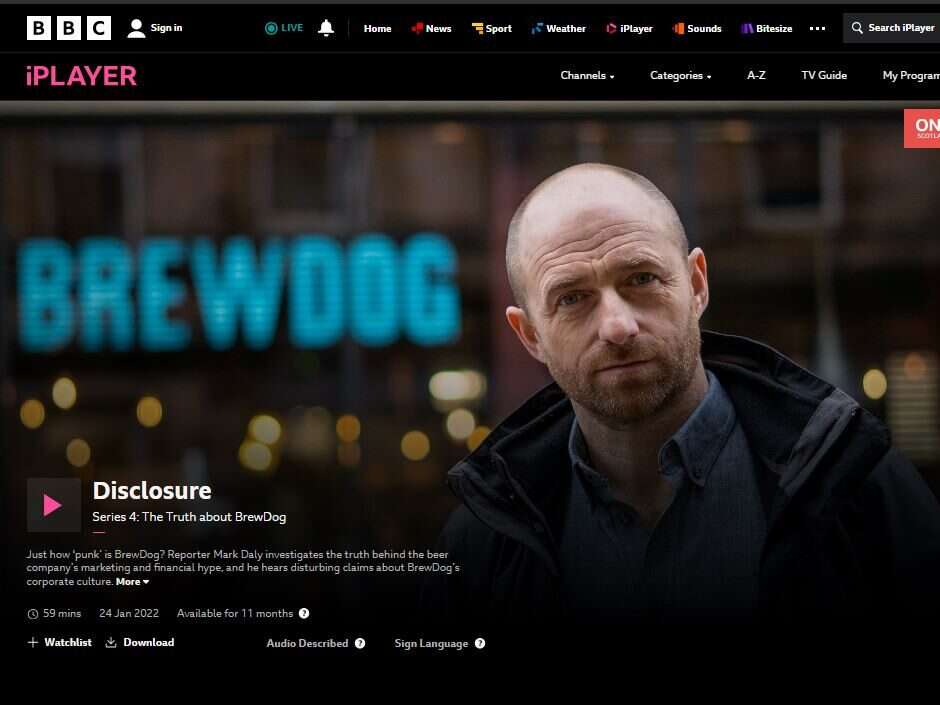
Ofcom has rejected more than 20 complaints brought against the BBC by Brewdog and its chief executive James Watt.
Watts complained about breach of privacy over coverage of his investments and unfairness in the way the BBC aired allegations of personal misconduct against him.
Ofcom ruled that the BBC Disclosure documentary, The Truth about Brewdog, was fair and that Watts was given adequate right or reply. It said the invasion of privacy was justified in the public interest.
Reporter Mark Daly said on X: “It’s a vindication of the BBC’s journalism, and Ofcom has recognised some important journalistic principles.”
Standards complaints about BBC programming must go to the broadcaster first before they can be considered by Ofcom. However, fairness and privacy complaints follow a separate procedure and can go straight to Ofcom, although the regulator does still encourage people to follow the BBC’s complaints procedures first.
Read the James Watt versus the BBC Ofcom ruling in full.
Brewdog said in a statement: “Ofcom’s ruling concerns the BBC’s reporting processes, not the ‘truth’ it reported. The regulator states itself that its role was not to determine the ‘factual accuracy’ of the programme.”
Brewdog said it maintains that the documentary included inaccuracies and said: “Since this programme aired, BrewDog has created nearly 1000 jobs, opened many bars in some of the toughest trading conditions ever and been included in the Sunday Times Best Places to Work as well as named a Top Employer by the Top Employer Institute.”
Email pged@pressgazette.co.uk to point out mistakes, provide story tips or send in a letter for publication on our "Letters Page" blog
